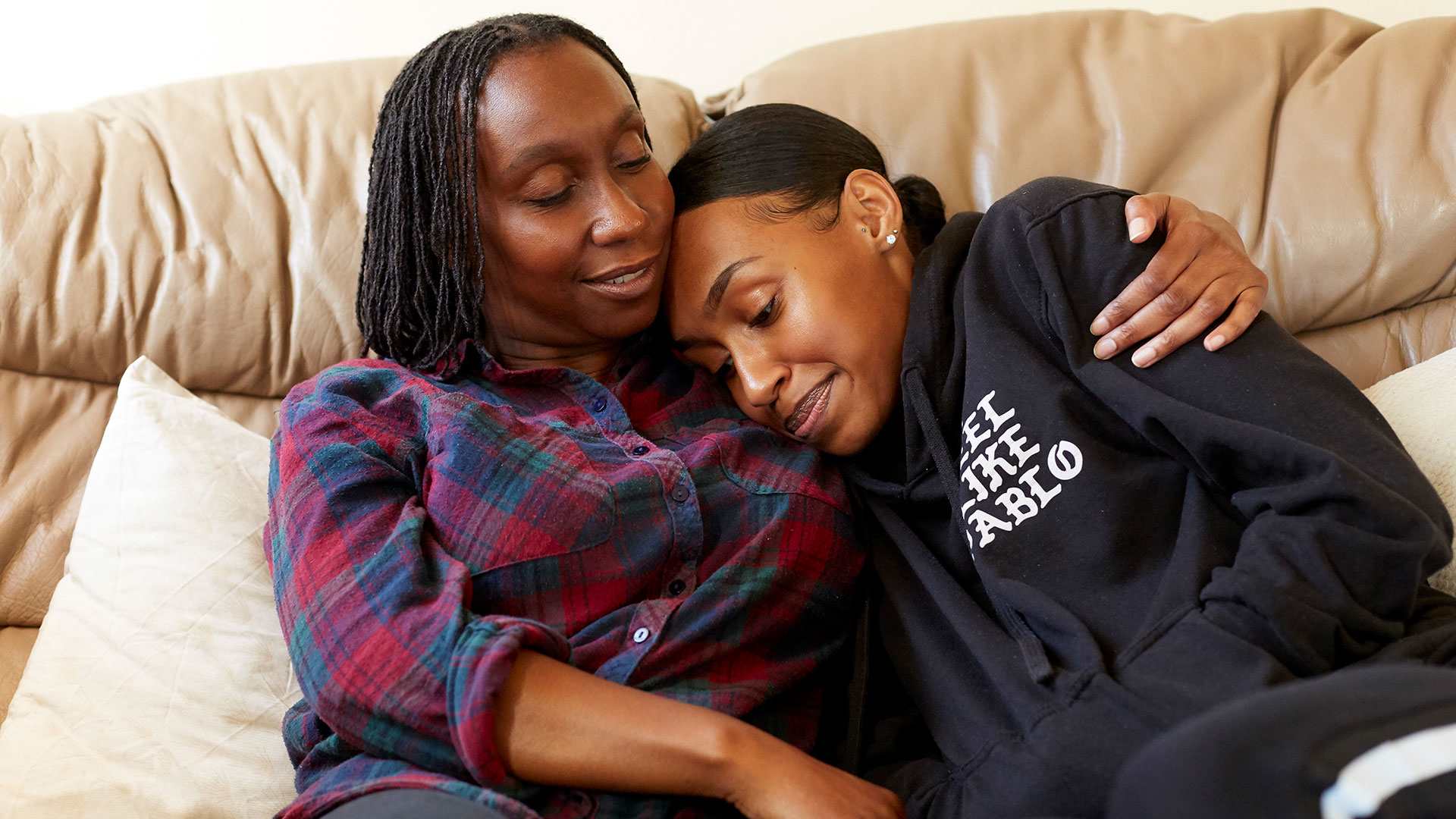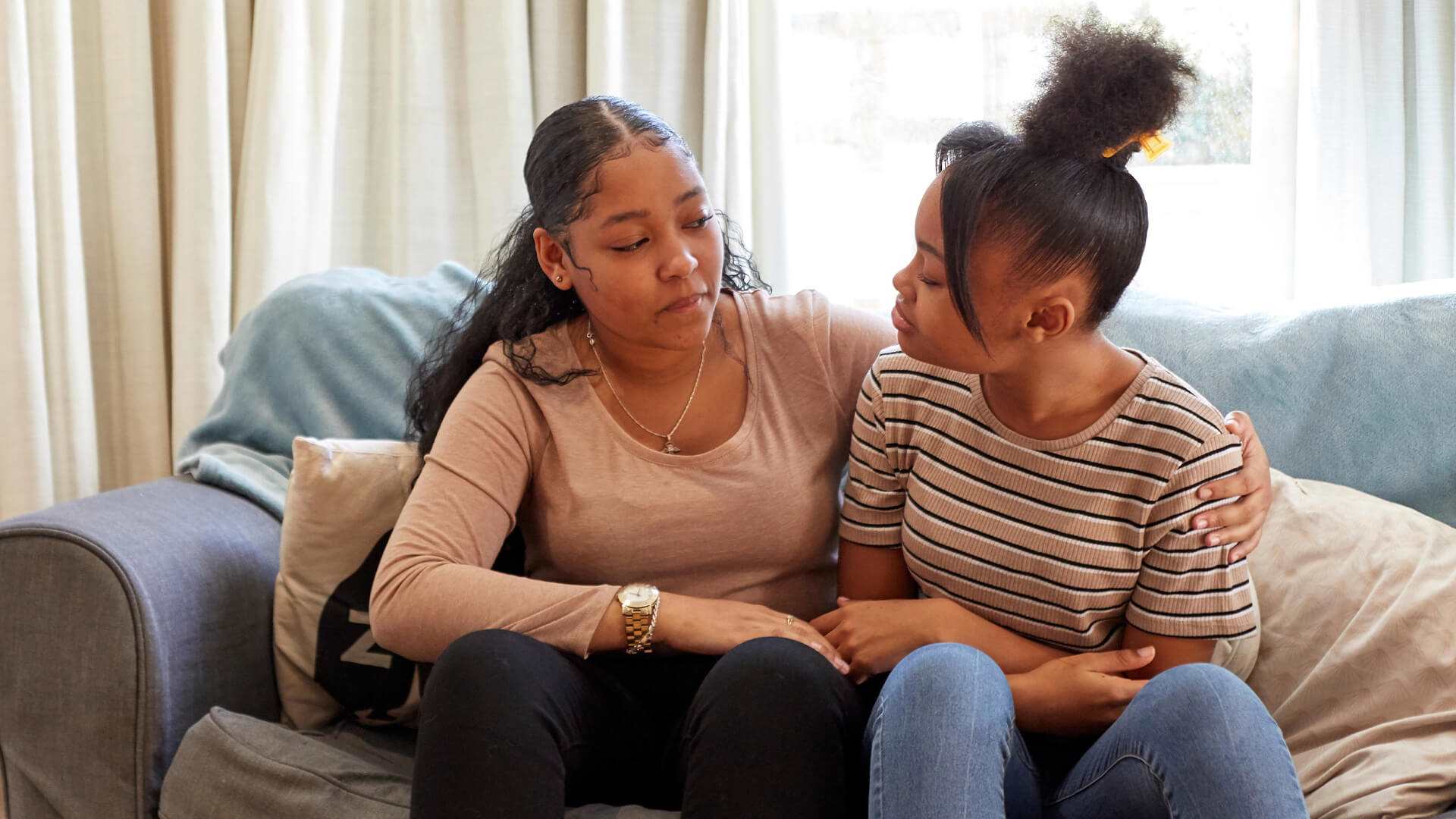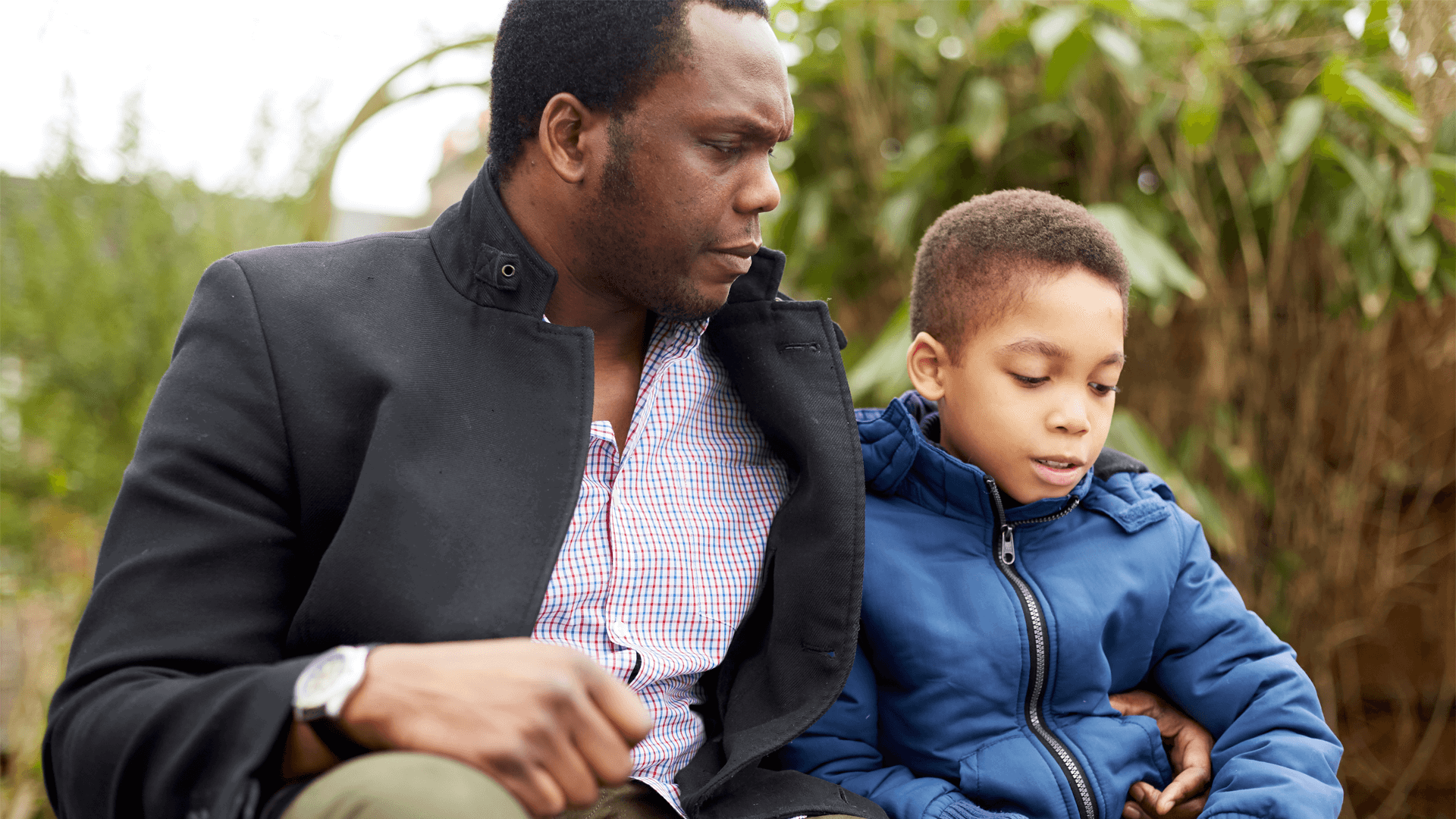
Losing someone or something we love and feel close to is extremely difficult and painful. Grief is our natural emotional response to this loss, and it is a process rather than an event.
Your child, as well as you and other family members, may be grieving because of:
- the death of someone in the family, like a parent, grandparent or sibling
- the death of a friend, or someone they knew at school
- the death of someone by suicide
- an illness, such as cancer or dementia, of someone they are close to
- the loss of a relationship, like someone moving away or no longer being a regular part of their life
- the loss or death of a pet
How do young people respond to loss?
Every child and young person will react to, feel and express loss differently, and this will change over time. There is no right or wrong way for a young person to grieve.
Children and young people who have gone through a significant loss can feel:
- anxious or worried, including about their own health or the health of people close to them
- frightened about losing other people they love
- sad, low or withdrawn
- isolated or lonely
- angry or irritable
- guilty
- numb
- physically unwell
- unable to concentrate
- unable to sleep
- that their moods change quickly
- that they cannot accept the situation
- that they are struggling to cope
It’s helpful to remember that it is normal for your child to feel and experience these things after a loss, particularly if they have lost someone they were close to.
How can I talk to my child about loss?
Explain to your child in an age-appropriate way what’s happened, and offer opportunities to think together about what it means.
Use clear language if you’re talking about death. We can find it difficult to say the words ‘died’ or ‘dead’ and might want to use softer expressions such as ‘gone to sleep’ or ‘passed on’. These expressions can be confusing for younger children, as they may believe the person will come back or become fearful of falling asleep themselves.
Remember that it’s okay not to have all the answers and to say you don’t know. Be guided by your child’s questions – these will let you know what they are curious or uncertain about.
Let them know that it’s okay to feel however they feel, whether that’s sad, overwhelmed, angry, worried or something else – and that there’s no right or wrong way to grieve. Whatever their emotional response, try not to take it personally.
Be curious, empathetic and non-judgmental about how they’re feeling, focusing on listening and providing emotional support. You won’t be able to make it all better, but being there makes a huge difference.
Reassure them that you love them, they’re not alone and they can talk to you whenever they need to.
If your child lets you know that they’re blaming themselves, or you’re worried they might be, reassure them that guilt is a common thing to feel after a loss – but that it is in no way their fault or responsibility.
Tips for starting a difficult conversation
If your child finds it difficult to talk, it might help to start a conversation while doing an activity. You can find our activity ideas here.
Especially with older children and teenagers, it’s okay to give them some space if they don’t want to talk. Sometimes it helps to just sit together quietly, or to offer a hand squeeze or gentle hug. Make sure they know you are there for them, and that it’s okay for them to open up to a relative, family friend or someone else they trust if they want to.
Alongside talking to your child, it might help for you to speak to someone you trust about your own feelings of grief and the impact the situation is having on you. This can help to create the head space you need to be there for your child.
How can I support my child?
This can help them to process and make sense of a loss. This could be things like:
- writing a letter to the person they have lost telling them all the things they want to say to them
- writing a letter to you or someone else who is supporting them, so you or they know what they
are going through - keeping a diary or journal of how they feel
- painting or drawing pictures
- writing songs or poems
- creating a memory box full of pictures and items, such as films, clothes and perfume, which remind them of good times they had with the person they have lost
Include them in family gatherings and activities such as the funeral or celebrations of life in an age-appropriate way. Prepare them for these events so they know what to expect.
This could be lighting a candle, letting off balloons, saying a prayer or poem, writing a letter, planting a flower or tree, or visiting the grave or another special place.
This can help them feel safe and relaxed, giving them a break from the grief, even if just for a little while. It might be things like drawing, making something, listening to music, playing sport, cooking or watching a favourite film.
Your child may feel worried that it’s wrong to have a good time. Reassure them that it’s okay to feel happy and to enjoy something, and that this does not take away from how much they care about the person they’ve lost.
Alongside offering time together and opportunities to talk, it's okay if your child also needs time and space to figure out how they want to process what’s happened.
This could include acknowledging upcoming anniversaries or important occasions such as birthdays, and talking with your child about ways they might like to mark these.
Ask the school what support they can provide, and ask your child whether there’s anything they’d like at school - such as having a particular teacher they can go to.

Young people’s advice for those who are grieving
- Take the next step, the next minute, the next day, one at a time.
- There is no one way to grieve.
- It’s okay to be angry and to express your anger.
- There’s no shame in having a strong reaction.
- It’s okay to feel nothing.
- It’s okay not to be okay.
- It’s okay to reach out for help.
- Don’t feel guilty for having fun.
- You’re not alone.

Helping your child with a sudden or unexpected bereavement
When a death is sudden or unexpected, children are likely to feel extremely shocked in both emotional and physical ways. They may find it impossible to believe that it’s happened, or feel numb or confused. They may scream or shake, or stop talking, eating or drinking. They may experience tummy aches, headaches and other pains, feel dizzy, sleep for longer periods than normal or have nightmares. They may also act out and feel very angry. These reactions are a normal way of coping with huge shock.
In the days and weeks after a sudden death, the most important thing you and other family members or friends can do is provide safety and support. See below for our tips on how to do that.
-
Hold and reassure them
Let them know how much you love them.
-
Tell people who need to know
Tell everyone who needs to know what’s happened, including someone at their school.
-
Provide opportunities for them to talk
Provide opportunities for them to start talking when they’re ready, letting them speak as often and for as long as they need to.
-
Help them meet their basic needs
Take care of their physical needs, and guide them through the daily things that are important for wellbeing, such as eating, drinking, washing, keeping warm and sleeping.
-
Think about their normal responsibilities
Make sure their normal responsibilities - such as feeding or walking pets - are covered if they’re worried about them, while letting them continue with these if they’d like to.
Getting professional help
Grief has no set timescale, and it is normal to feel a whole range of emotions after a loss. Sometimes, however, a young person may feel they are struggling to cope over a much longer period of time.
Your child may need professional support if, over a prolonged period, they are:
- feeling depressed or anxious
- withdrawing from family, friends and activities
- struggling to sleep
- refusing to go to school
- turning to less healthy coping mechanisms such as self-harm
- talking regularly about wanting to join the person who has died
- experiencing suicidal thoughts
- acting like a much younger child
- not believing that the person has died
If you know that someone close to your child is going to die, pre-bereavement counselling can help them to think and talk about their feelings and worries. Some hospices and other charities offer this service, so speak to the professionals supporting your family to see what’s available.
If you’re worried about your child’s mental health or wellbeing, speaking to your GP is often a good first step. They can discuss your concerns and, if needed, refer your child for more support - including to Child and Adolescent Mental Health Services (CAMHS).
You can find out more about speaking to GPs, accessing CAMHS, getting help from your child’s school and finding local services on our guide to getting help.

Supporting a young person who is grieving can be a very emotional experience, so take time to look after yourself and top up your own batteries. If you are also grieving, things may feel overwhelming at times. Where possible, allow time and space for your own grief – and remember that it’s okay to ask for help from family, friends and others when you need it.
If you need more support with your own grief, or you feel you’re struggling to cope, it’s really important that you get the help you need so you can be there for your child. You can access online and face-to-face counselling, helpline support and online and in-person support groups via the bereavement services listed at the end of this guide.
Get help now
Useful helplines and websites
-
Winston's Wish
Offers practical support and guidance to bereaved children, their families and professionals.
Online chat service available for young people (1pm - 5pm, Tuesdays & Fridays).
- Opening times:
- 9am - 5pm, Monday - Friday
-
Hope Again
Cruse Bereavement Care’s website for young people experiencing grief.
Has lots of personal stories from young people who have lost someone, as well as information and advice.
- Opening times:
- 9:30am - 5pm, Monday - Friday
-
Cruse Bereavement Care
Support for anyone who is grieving.
Webchat service open 9am - 9pm, Monday to Friday.
- Opening times:
- 9.30am - 5pm, Monday to Friday; late opening until 8pm on Tuesday, Wednesday and Thursday; 10am - 2pm at weekends.
-
Marie Curie
Offers care, guidance and support for people living with any terminal illness and their families.
If English isn't you or your family's first language, they can provide an interpreter for over 200 different languages.
Free online chat service also available.
- Opening times:
- 8am - 6pm, Monday - Friday; 11am - 5pm, Saturdays; 10am - 4pm, Bank Holidays
-
Survivors of Bereavement by Suicide (SOBS)
Offers support for people over the age of 18 who have lost someone to suicide.
- Opening times:
- 9am - 9pm, Monday - Friday
-
The Mix
Offers support to anyone under 25 about anything that’s troubling them.
Email support available via their online contact form.
Free 1-2-1 webchat service available.
Free short-term counselling service available.
- Opening times:
- 3pm - 12am, seven days a week